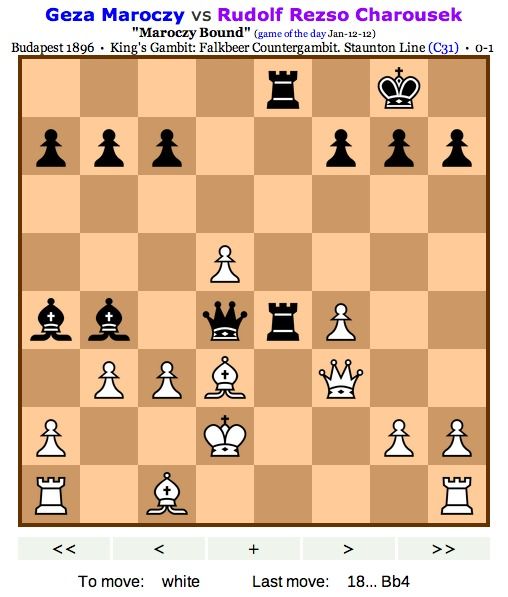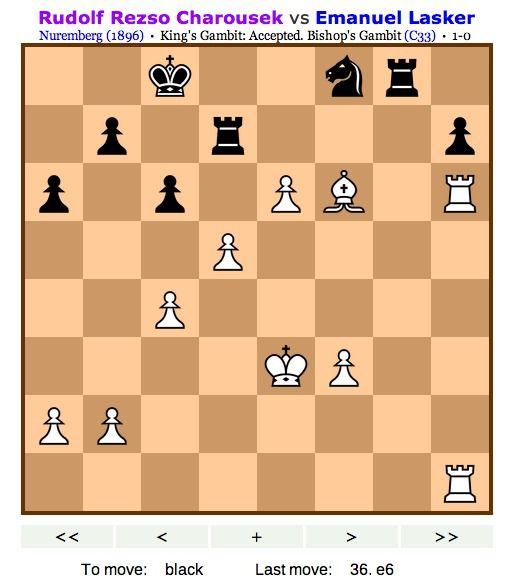The Whirlwind
Here is a story from a chess book I used to have, a fictional confrontation between an old master and an upstart Russian in 1947, in a fictional tournament for the crown of the unfortunate Alekhine, lately dead in Portugal.
The game is not fictional, however. It was played in 1893, not 1947, and the master with the white pieces was not an aged veteran, he was a brilliant 19 year-old Hungarian named Rudolf Charousek.
Here is how you pronounce his name. It's a perfect name for an attacking player, exotic and cyclonic, and it reinforces the impression of his play. He was so good he'd be remembered if they called him Hummelscheiss, but Charousek cannot be improved upon - he played just the way the name sounds.
Many young masters have produced brilliancies, but if you look closely you'll notice that their finest games usually come against weaker opponents. To win brilliant games against top-class competition at a young age is a hallmark of a Morphy, a Fischer, an Alekhine. Some of Charousek's finest games came against the strongest players of his time. Here is the improbable position after 18 moves against Geza Maroczy, inventor of the Maroczy Bind, one of the ten best players in the world at that time:
White to Play and Die in One of Several Unpleasant Ways

Ignoring pins, Black has four major pieces on take - the bishops, the queen, and the rook on e4. Of course three of those captures are impossible - capturing the b4 bishop would allow the Black queen to capture White's rook; capturing the Queen would be check from the b4 bishop; and capturing the e4 rook would mean check from the Black queen. Capturing the bishop on the a4 file would lead to QxP (check), and horrible things to follow. Not that they didn't anyway.
Even the prodigies, however, falter at the highest level of competition. In chess the World Champion has special status somehow, an aura or intimidation factor. Upstarts don't beat world champions, except for the Promethean Tal, and even he surrendered the crown in a rematch. So it was serious news when Charousek beat Emanuel Lasker, pushing a passed pawn like a dagger into the heart of the black position:
You Lose, But You Will Receive a Copy of Our Home Game

Lasker said "I shall have to play a championship match with this man someday."
Sadly, it never came to pass - the young genius died of tuberculosis in 1900, at the age of 27. But in old books or on our computers we can still see traces of the brilliant whirlwind, Charousek.
Labels: chess


0 Comments:
Post a Comment
<< Home